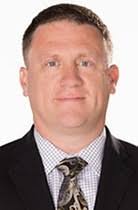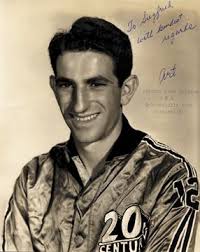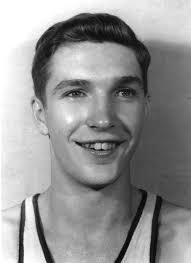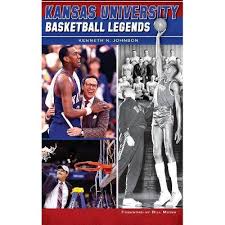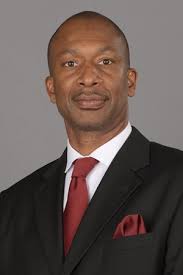The NBA Finals date back to 1947 (when they were known as the Basketball Association of America Finals) and the very 1st NCAA tourney was held in 1939. Olympic basketball competition is even older: it debuted as a demonstration event in 1904 and the men’s version became a medal sport in 1936, with the women finally getting their chance to go for the gold in 1976. The United States has dominated Olympic basketball competition from the start: the men have won 15 gold medals in the 18 tournaments they have participated in during the past 84 years, while the women have won 8 gold medals in the 10 tournaments in which they have competed during the past 44 years. Those of you who were looking forward to the 2020 Olympics opening ceremonies in Tokyo on July 24, 2020 will have to wait an extra 364 days, as the coronavirus caused a postponement until July 23, 2021. Due to the absence of college basketball since mid-March, HoopsHD’s Jon Teitel decided to fill the void by trying to interview as many prior Olympic players/coaches as possible so that you have something to read this summer while not watching the Summer Games. We continue our coverage by chatting with Sylvia Hatchell about winning a gold medal in 1988 and an NCAA title in 1994. Today marks the 32nd anniversary of team USA’s 101-74 win over Yugoslavia in Olympic round-robin pool play.
In July of 1983 you were an assistant coach for team USA at the World University Games where you beat Hong Kong 134–23: what was it like to win a game by 111 PTS?! Anything can happen in international ball on any given day: the officiating/styles of play are very different. Some teams lived/died by the 3-PT shot and it was not the dominant sport in their country. We played really well and when your opponent is not making threes it can get out of hand. Hong Kong did not quit but we just had to move on to the next team.
You won the 1982 AIAW D-2 title and the 1986 NAIA title as coach at Francis Marion: what did it mean to you to win 2 titles in a 5-year span, and why did you decide to leave for Chapel Hill after the 2nd 1? I had a great situation with great kids who loved to compete. 1982 was the last year of AIAW and we played some really good teams. Some people never heard of us and thought that we were a Catholic school. The NAIA had rules and it was a great environment in Kansas City. Beating Wayland Baptist in 1986 was a really big win for us: I left a really great team that made it back to the Final 4 the following year. I had interviewed at many places but I just kept waiting for the right offer. I am from North Carolina and grew up as a big Dean Smith fan: when the job came open I felt that I could build a great program and have a great team. Dean was really good to me. I loved UNC but I had great kids at Francis Marion and 1 part-time assistant coach and 3 scholarships: it was so fun/rewarding. I swept the floor/drove the bus/washed the uniforms because it was not about money: I think every local high school coach in the area made more than I did.
You were an assistant coach for team USA at the 1988 Olympics: what did it mean to you to represent your country, and what did it mean to you to win a gold medal? I had developed a relationship with Coach Kay Yow, who asked me to be her assistant at the Goodwill Games/World Championships. The very day that I got the offer from UNC I was suitemates with Kay while coaching team USA in Colorado Springs. I had a pink slip on my door asking me to call athletic director John Swofford: he offered me the job and I took it on the spot. I walked back to the room and told Kay that I got the job: she was worried that our fans would not understand it! Even though we were competitors when she was at NC State we worked so well together with team USA: we were a lot alike and worked hard and had the same philosophy. I was very loyal to her and did everything in my power to help her win a gold medal. I was on the staff in 1984 but it was bittersweet because the Russians did not show up, so to finally beat them in the 1988 semifinals when they had Uljana Semjonova was special. Uljana was the greatest player in the world but when Anne Donovan blocked 1 of her shots it gave us a huge boost of courage. I remember talking to Dick Enberg after the game about what a great moment it was for women’s basketball but how we were still so far from where we needed to be. I was actually pregnant with my son during that trip: we got a tour of the DMZ from a 4-star general along with Maria Shriver/Tom Brokaw! I have won 3 national titles but there is nothing like winning a gold medal. We were not up on the podium with our players but standing there with our hands over our hearts while the flag was raised and the anthem was played was unbelievable: it still takes my breath away even today. You do not understand at the time how blessed you are.
Take me through the magical 1994 NCAA tourney as coach at North Carolina:
Your point guard was Marion Jones, who later won 5 medals in track and field at the 2000 Olympics: where does she rank among the greatest athletes that you have ever seen? She is the greatest athlete I have ever coached, without a doubt. I had some other tremendous players but she did things that would just make me shake my head. I remember her getting beat on defense and then racing back so fast that she would get in front of her opponent. She was not that great of a basketball player when we recruited her but she wanted to play a team sport in addition to track and field. She was also an unbelievable leader and was the missing cog to the wheel even as a freshman. She is only 5’10” but could still dunk the ball.
After calling a timeout with 0.7 seconds left in the title game, Stephanie Lawrence inbounded to Charlotte Smith (whose 23 REB tied the record for most REB in an NCAA tourney game) who made a 3-PT shot at the buzzer to clinch a 1-PT win over Louisiana Tech: how did you draw up the play, and where does that rank among the most clutch shots that you have ever seen? We had a series of plays where we would screen the screener and ran it several times during the game where Charlotte would curl toward the baseline. After we called timeout I huddled with my coaches and the next thing you know I went into the huddle with the players and did not understand where my words were coming from. I told Charlotte to flare out behind the 3-PT line and there is no doubt that her shot changed my life. When we set up for the play Stephanie called another timeout because she saw something that did not look good, which I had told her to do. We went back out there and Louisiana Tech took its defender off of our in-bounder, which helped us out tremendously. The pass had to go under the basket and over their tall center Racquel Spurlock. Louisiana Tech thought the ball was going to Tanya Sampson so they double-teamed her, then Stephanie threw an absolutely perfect pass right into the palm of Charlotte’s hand. Charlotte was right in front of our bench so I could see that her shot was on track. It was so rewarding because we had been at the bottom of the ACC just 3 years earlier. When they do a list of the best shots in women’s basketball history it is still right at the top, although Arike Ogunbowale made a big 1 for Muffet McGraw a couple of years ago.
In the 2007 Final 4 you held a 48-36 lead with just over 8 minutes left but then did not score another basket as Tennessee went on a 20–2 run to win by 6 PTS: where does that rank among the most devastating losses of your career? It probably was, although I had a game at Francis Marion when we were ranked #1 in the country and had a huge lead before losing on the road thanks to some local officials in triple-OT. I do not usually blame the refs but that 1 probably cost me a national title! There was another game against Tennessee in 1998 when the Vols were undefeated and we had a lead late against them at Vanderbilt before losing by 6 PTS. Coach Pat Summitt went out on the court and got in the ref’s face but did not get called for a technical: after that point Tennessee outshot us 16-4 at the foul line. In 2007 they just started trapping us: Camille Little was our glue and when she fouled out we just fell apart. I could not sleep for a long time after that game.
You made 21 NCAA tourneys during a 24-year stretch from 1992-2015: how were you able to remain so successful for such a long period of time? I had great players and a great staff: the only turnover I had was if another school hired 1 of my assistants to be a head coach. We played with a high tempo and kids like that style. The game is definitely different now: there is more of a controlled approach with a sagging defense to contain your opponent. It is not the Pat Summitt-style of pressure defense. The team concept is still huge but there is a lot more 1-on-1 dribble penetration that kids learn from a skills coach. Everyone thinks that they should be a star and instead of waiting their time they will just transfer to another program thanks to having everyone in their ear. I wish that we played international basketball starting in middle school: we are the only country in the world that does not use international rules. I have served on a rules committee before and do not think they need to keep changing so many rules, although I am in favor of a 24-second shot clock.
You were a 3-time national COY and your 1023 career wins are #5 in NCAA women’s basketball history: where do you rank yourself among the greatest coaches in the history of the sport? I am just blessed to have been a part of this great game. I came along at the right time: I was in college when they passed Title IX and later was a grad assistant to Pat at Tennessee. She got me involved in USA Basketball and we were very close. I was fortunate to have so many opportunities and would not have had the success I had if Pat had not opened up so many doors for me. I had a lot of great kids who loved to play: they did not feel entitled and just wanted to help their teammates win. The coaching pioneers of the game like Pat/Kay/Jody Conradt/Sue Gunter all taught me so much. I only had 2 jobs in my entire life because I had great administrative support at both places. I cannot believe that I won 1000+ games: I was still anxious before each game because I had the passion for the sport.
You are the only coach to ever win national championships at the AIAW/NAIA/NCAA levels: what is the biggest difference between coaching at a small school vs. coaching at a large school? When I was at Francis Marion there was not as much of a talent separation because scholarships were just getting started. When we would go beat a team like Clemson/NC State it was not really an upset because our players were simply better. The kids I had were good enough to go to any top-10 school: I was just in a hotbed of talent thanks to small towns in South Carolina. There was not as much media back then so nobody knew how good all of those players were. A school like Delta State could get a few good players and then win a championship. I had 4 cars during my time there and I wore them all out! I would jump in the car and drive 5-6 hours each way to recruit a kid because I loved doing it. In the late 1980s there started to be some more separation after Pat started winning all of her titles. Big kids are not as big of a factor now as in the past but I think that will come back around in the future. I hate all of the politics involved in sports: I understand that people need platforms but some fans just want to simply watch a basketball game. I know Coach K really well and he is a great guy but some other veteran coaches have different goals/reasons for coaching. I think we also need more AAU supervision.
Your husband Sammy was the all-time winningest coach at Meredith College and was associate head coach of the Shaw University women’s team that won the 2012 D-2 national title: who is the best coach in the family? He was not as high-profile as I was but he has won big everywhere he has coached. I do not know if Meredith even won a game before he got there, and then during his 1st year at Shaw they won a national title. He is retired too but works part-time for a company called Shoot-A-Way that makes machines that pass the ball back to a player after they make a shot in practice.
You were inducted into the Women’s Basketball Hall of Fame in 2004 and the Naismith Basketball Hall of Fame in 2013: when people look back on your career, how do you want to be remembered the most? As someone who had passion/love for the game and the best interest of the players at heart. I always tried to treat my players the way that I wanted to be treated and teach them a lot of life skills. There is nothing greater than making the Naismith Hall of Fame. Now I am trying to help a lot of other female coaches who are going through a hard time: it is a big gender issue with a lot of difficult situations. I have probably had 10-15 women call me this year. I am not opposed to men coaching women but I want women to have the opportunity to coach their sport. There are only about 40% of women’s teams who have a female coach and I want to make sure that we do it the right way. I have about 80 branches on my coaching tree so hopefully they all had a great experience as 1 of my players/assistants. It makes me really proud and I have great memories of each of them. Life is not about what you gather but rather what you scatter: you cannot have a great harvest without planting some great seeds.


